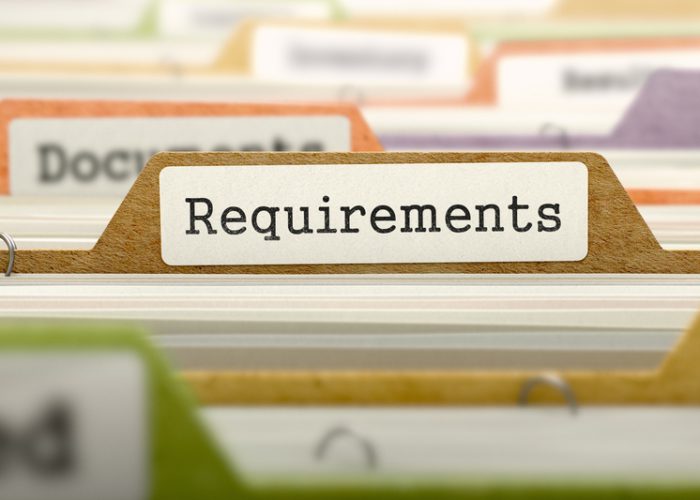Steps for Seeking Asylum in Europe: A Comprehensive Guide

15 Oct
Seeking asylum in Europe is a complex and emotional process that requires a clear understanding of legal frameworks, country-specific requirements, and procedural details. For individuals leaving their home countries due to war, persecution, or human rights violations, knowing the steps to follow is crucial.
This blog post provides an in-depth guide on the process of seeking asylum in Europe, along with helpful tips and important resources. Whether you're exploring the asylum process or seeking guidance for a loved one, HetDynamic Immigration Services, a trusted immigration consultancy based in Nigeria, is here to support you through the journey.
Table of Contents
- Understanding Asylum
- Key Reasons for Seeking Asylum
- Choosing the Right European Country
- Legal Requirements for Asylum Seekers
- The Asylum Application Process
- Preparing Your Documentation
- Submitting Your Application
- Arrival and Initial Steps
- Interview Procedures
- Living Conditions in Asylum Centres
- Financial Assistance for Asylum Seekers
- Health and Medical Services
- Access to Education
- Integration Programs
- Common Challenges Faced by Asylum Seekers
- Tips for a Successful Asylum Application
- Legal Support and Aid
- Understanding Asylum
Asylum is the protection granted by a country to foreign nationals fleeing persecution or serious harm in their home country. In Europe, asylum seekers are entitled to protection under international law, particularly through the 1951 Refugee Convention and the European Convention on Human Rights. The asylum process allows individuals to reside legally in Europe while their application is reviewed.
Who Qualifies for Asylum?

Individuals can seek asylum based on:
- Fearing persecution due to race, religion, nationality, or political opinion.
- Fleeing armed conflict or civil war.
- Human rights violations in their home country.
Understanding your rights as an asylum seeker is critical to navigating the asylum process successfully.
- Key Reasons for Seeking Asylum Many people leave their home countries because they face imminent threats to their lives and freedoms. Common reasons for seeking asylum include:
- Political persecution: Oppression due to political affiliations or activism.
- Ethnic or religious persecution: Discrimination or violence based on one’s religion or ethnicity.
- Gender-based violence: Women and LGBTQ+ individuals facing abuse or discrimination may seek asylum.
- Armed conflict: Those escaping war zones or civil unrest, such as from countries like Syria or Afghanistan.
- Fleeing human rights abuses: Victims of torture, slavery, or forced conscription can also apply for asylum.
- Choosing the Right European Country Not all European countries have the same asylum policies, and some may offer better support depending on your circumstances. The Dublin Regulation states that the first European country an asylum seeker enters is responsible for processing their asylum claim. However, considering economic conditions, social support, and refugee integration programs can help you make an informed decision.
Top countries for asylum in Europe include:

- Germany
- Germany remains one of the top destinations for Nigerian asylum seekers. The country has a well-structured asylum process, and while the acceptance rate for Nigerian asylum seekers can be low compared to some other nationalities, Germany still provides considerable support through its refugee integration programs.
- Reasons: Strong economy, extensive social welfare system, and integration programs for refugees.
- Italy
- Italy has historically been one of the primary entry points for Nigerians seeking asylum due to its proximity to migration routes from North Africa. Italy has received a significant number of Nigerian asylum seekers over the years, especially through boat crossings via the Mediterranean Sea.
- Reasons: Geographic proximity and the presence of established Nigerian communities.
- France
- France is another popular destination for Nigerian asylum seekers. France offers robust asylum and refugee programs, with relatively good support systems for individuals who receive refugee status.
- Reasons: Strong refugee protection laws, social support for asylum seekers, and proximity to other European nations.
- United Kingdom
- Although no longer part of the EU, the UK has traditionally been a favored destination for Nigerian asylum seekers. Many Nigerians are drawn to the UK due to the shared history, language, and presence of a large Nigerian diaspora. However, post-Brexit immigration rules have become stricter.
- Reasons: Historic ties to Nigeria, large Nigerian diaspora, and the common use of English.
- Netherlands
- The Netherlands has seen a steady number of Nigerian asylum seekers in recent years. The country provides structured asylum services and has a growing Nigerian community, making it an attractive option for those seeking protection.
- Reasons: Supportive asylum system, social services, and a growing Nigerian population.
- Sweden
- Sweden has a long-standing reputation for welcoming asylum seekers, including Nigerians. It has extensive social welfare programs for refugees and a comprehensive integration system that includes language classes, housing, and job training.
- Reasons: Strong refugee protections, integration programs, and an emphasis on human rights.
- Belgium
- Belgium has a considerable Nigerian asylum-seeking population due to its welcoming asylum procedures and proximity to France, the UK, and other European countries.
- Reasons: Central location in Europe, established Nigerian communities, and robust legal protections for asylum seekers.
- Austria
- Austria has become an increasingly common destination for Nigerian asylum seekers in recent years. While the process can be challenging, Austria’s refugee programs and the general quality of life attract asylum applicants from Nigeria.
- Reasons: Quality of life, structured asylum process, and access to employment for refugees.
- Spain
- Spain has seen a growing number of Nigerian asylum seekers, especially through migration routes from Africa. While acceptance rates can vary, Spain offers a relatively swift asylum process compared to other countries.
- Reasons: Proximity to Africa, established migration routes, and improving asylum infrastructure.
- Switzerland
- Although not an EU country, Switzerland has a strong history of granting asylum to individuals fleeing persecution. Nigerians have sought refuge in Switzerland due to the country's stability, social welfare programs, and fair asylum policies.
- Reasons: Stable economy, strong legal system for refugees, and access to quality healthcare and education.
- Legal Requirements for Asylum Seekers

To apply for asylum in Europe, you must demonstrate that:
- You are outside your home country.
- You cannot return to your country due to legitimate fears of persecution, violence, or oppression.
- You have not already been granted asylum in another country under the Dublin Regulation.
-
The Asylum Application Process
-
Preparing Your Documentation
Before submitting your asylum application, make sure you have the following documents:
-
Identification: Passport, birth certificate, or other proof of identity.
-
Proof of persecution: Documentation showing threats or harm you’ve faced, such as police reports or photographs.
-
Personal statement: Written testimony explaining your reasons for seeking asylum.
Submitting Your Application Once you reach the country where you plan to seek asylum, immediately go to the relevant immigration authorities to submit your application. You will be provided with a form, which you should fill out carefully, ensuring that all the information is accurate and matches your personal documents.
-
Most countries offer translators to assist applicants if needed.
-
Arrival and Initial Steps Upon arrival in the European country, asylum seekers must:
- Register their asylum claim with immigration authorities.
- Be placed in an asylum reception center where basic needs (shelter, food, clothing) are provided.
- Await the results of their application.
-
Interview Procedures
After submitting your application, you will be called for an asylum interview. This interview is crucial to the success of your claim. You will be asked about:
- Your background.
- Specific reasons for seeking asylum.
- Detailed accounts of persecution or harm you’ve experienced.
It’s important to be truthful and provide as much detail as possible during the interview.
-
Living Conditions in Asylum Centres
In most European countries, asylum seekers are housed in asylum centers while their applications are processed. These centers vary in quality but generally offer:
- Basic housing facilities.
- Meals and essential supplies.
- Medical care.
In some cases, asylum seekers are allowed to live outside the centers if they have personal housing arrangements.
-
Financial Assistance for Asylum Seekers
While awaiting the outcome of your asylum application, you may be eligible for financial assistance. European countries, including Germany, France, and Sweden, provide monthly allowances to help asylum seekers meet their basic needs.
The amount of financial aid differs from country to country, and some countries may offer vouchers instead of cash.
-
Health and Medical Services
As an asylum seeker, you are entitled to basic healthcare services. European countries provide asylum seekers with free or subsidized medical care, including:
- General practitioner visits.
- Hospital care.
- Emergency services.
- Mental health support, especially for trauma survivors.
-
Access to Education
Children of asylum seekers in Europe have the right to access education. Many countries integrate asylum-seeking children into public schools, allowing them to continue their education. In some cases, there are specialized programs to assist children in learning the local language and adapting to a new educational system.
-
Integration Programs
Some European countries offer integration programs for asylum seekers and refugees. These programs may include:
- Language classes to help individuals learn the official language of the country.
- Job training to prepare refugees for the local workforce.
- Cultural orientation to help newcomers adjust to European society.
Countries like Germany and Sweden are known for offering robust integration programs that support long-term residency.
-
Common Challenges Faced by Asylum Seekers
The asylum process can be long and fraught with difficulties. Some common challenges include:
- Lengthy application processes: In some countries, asylum seekers must wait months or even years for a decision.
- Language barriers: Many asylum seekers struggle to communicate in the local language.
- Discrimination: Unfortunately, refugees often face prejudice and social exclusion in their new countries.
- Mental health issues: The trauma of fleeing persecution, coupled with the stress of the asylum process, can take a toll on mental health.
-
Tips for a Successful Asylum Application
Here are some tips to increase the likelihood of a successful asylum application:
- Be honest and detailed: Provide full, accurate information about your experiences and why you cannot return to your home country.
- Prepare thoroughly: Gather as much documentation as possible to support your claim.
- Seek legal advice: Consult an immigration lawyer or legal aid organization specializing in asylum law.
- Attend all appointments and interviews: Failure to show up can result in your application being denied.
-
Legal Support and Aid
-
When to Hire an Immigration Lawyer
It is highly recommended that asylum seekers consult with an immigration lawyer. Legal support can make the difference between a successful or failed application, especially in complex cases involving missing documentation or legal disputes.
Conclusion
Seeking asylum in Europe can be an overwhelming process, but with the right guidance and preparation, you can navigate the system effectively.
#AsylumInEurope #EuropeanAsylumProcess #RefugeesInEurope #AsylumSeekersRights #HetDynamicImmigrationServices #ImmigrationHelpNigeria #EuropeAsylumGuide #SeekingAsylum2024 #LegalAidForAsylumSeekers




(0) Comment